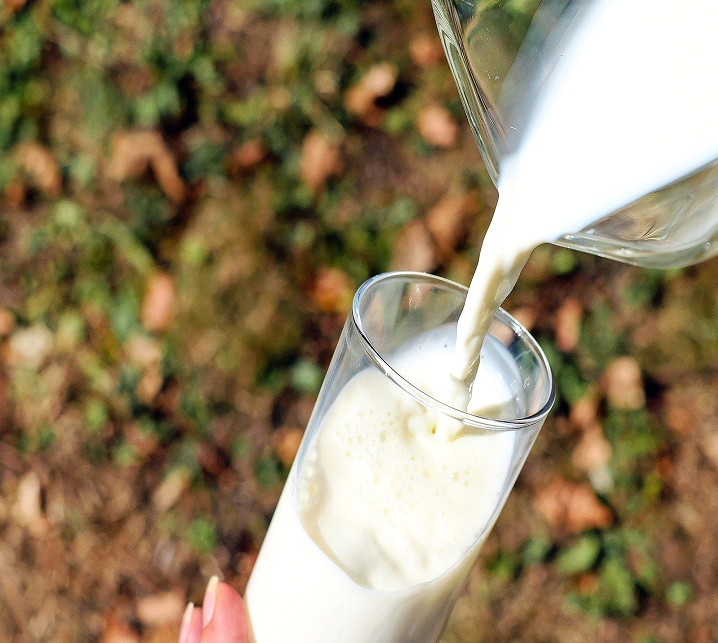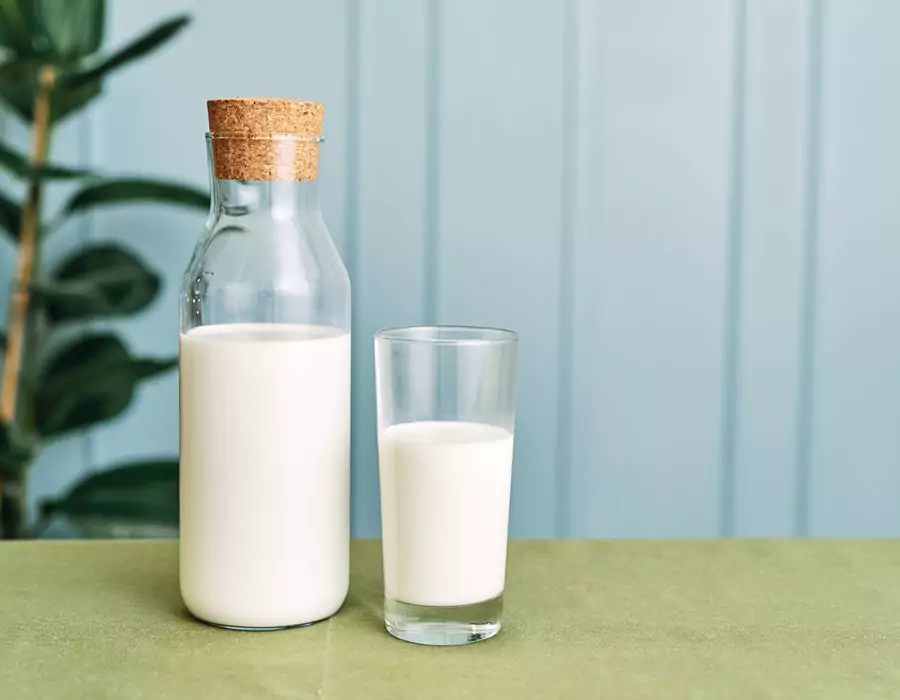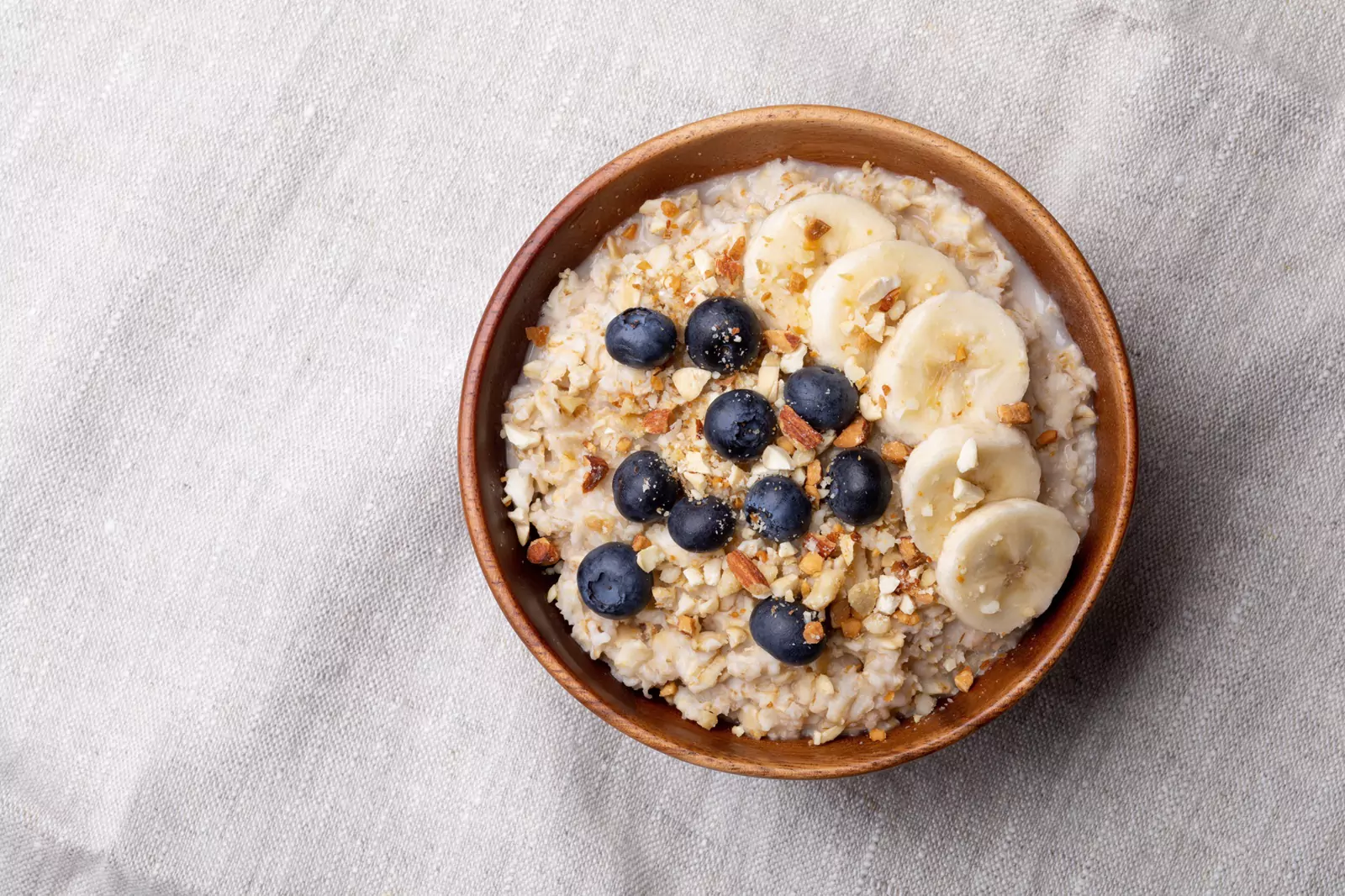






Is Oat Milk Good for Diabetics?


Table of Contents
- The Rise of Milk Alternatives
- Why People Are Switching
- Popular Milk Alternatives
- Oat Milk's Popularity
- The Importance of Choice for Diabetics
- What is Oat Milk?
- Nutritional Profile
- How It's Made
- Unsweetened vs. Flavored
- Glycemic Index and Oat Milk
- Oat Milk's Glycemic Index
- Impact on Blood Sugar Levels
- Expert Opinions
- Oat Milk vs. Other Milks
- Oat Milk vs. Almond Milk
- Oat Milk vs. Coconut Milk
- Oat Milk vs. Dairy Milk
- The Best Plant-Based Milk Alternatives
- Comparison Table
- Health Benefits of Oat Milk
- Lowering Cholesterol
- Nutrient-Rich Profile
- Digestive Health
- SugarMD Super Berberine Supplement
- Potential Drawbacks of Oat Milk
- Carbohydrate Content
- Added Sugars in Commercial Brands
- Cost Factor
- Allergen Concerns
- Potential Drawbacks Summary Table
- Conclusion
- About The Author
The Rise of Milk Alternatives
Why People Are Switching
The shift toward milk alternatives is more than just a trend; it's a lifestyle change driven by various factors. Health concerns top the list. Traditional dairy milk, while rich in calcium and vitamins, has been linked to higher cholesterol levels. For those watching their heart health, this is a red flag. Then there's the lactose intolerant crowd. Digesting dairy can be a painful ordeal for them, leading to gastrointestinal issues. Why suffer when there are alternatives? Ethical reasons also play a part. The dairy industry has been criticized for its environmental impact and animal welfare practices. So, for those who want to make a more conscious choice, plant-based milks offer a guilt-free option.Popular Milk Alternatives
When it comes to milk alternatives there's no shortage of options. Almond milk has been a go-to for years, especially for those looking to cut calories. It's low in sugar and high in vitamin E. Coconut milk is another favorite, often praised for its creamy texture and tropical flavor. But let's not forget the wide array of plant-based milks flooding the market—soy, rice, hemp and the list goes on. Each has its unique nutritional profile, making the milk aisle more diverse than ever.Oat Milk's Popularity
Enter oat milk the new kid on the block that's quickly climbing the popularity ladder. What sets oat milk apart? For starters, it's incredibly creamy, making it a favorite for lattes and smoothies. It's also nut-free, a boon for those with allergies. But the real kicker? It's environmentally friendly. Oats require less water and produce fewer greenhouse gases compared to almonds and soy. Yet the question remains: Is oat milk good for diabetics? It's a crucial query given that oat milk often contains more carbohydrates than other milk alternatives. This brings us to the importance of choice for diabetics.The Importance of Choice for Diabetics
For diabetics the stakes are higher when picking a milk alternative. It's not just about taste or ethical considerations; it's about health. The glycemic index, carbohydrate content and added sugars—all these factors come into play. Oat milk, while nutritious, can have a higher carbohydrate content which could lead to a spike in blood sugar levels if consumed in large quantities. Therefore, it's essential for diabetics to read labels carefully and consult healthcare providers for personalized advice. https://www.youtube.com/watch?v=7vwiLdcpMvM&pp=ygUNc3VnYXJtZHMgbWlsaw%3D%3DWhat is Oat Milk?
Oat milk is a plant-based milk alternative that's been making waves in the health community. But what exactly is in it? Primarily, oat milk consists of oats and water. Simple, right? But let's dig deeper. On average, a cup of oat milk contains about 4 grams of protein and 16 grams of carbohydrates. Compared to dairy milk, oat milk has less protein but more carbohydrates. This is a crucial point for diabetics who need to monitor their carbohydrate intake closely.Nutritional Profile
Now, let's talk nutrients. Oat milk is fortified with calcium and vitamins like B12 and D, making it a nutrient-dense option. But what about cholesterol levels? Good news! Oat milk contains zero cholesterol, making it a heart-healthy option. It's also rich in fiber which aids in digestion and helps regulate blood sugar levels. However, it's essential to note that not all oat milks are created equal. Some may contain added nutrients, while others might lack them. Always check the label to know what you're getting.How It's Made
The production process of oat milk is relatively straightforward. Oats are soaked in water, blended and then strained to separate the liquid from the solid residues. The liquid is what we know as oat milk. Some commercial brands may add enzymes to break down the starches further, resulting in a creamier texture. It's a simple process but the variations in production can lead to differences in nutritional content. So, if you're diabetic and wondering, "Is oat milk good for me?" knowing how it's made can offer valuable insights.Unsweetened vs. Flavored
Here's where things get a bit tricky. While oat milk naturally contains sugars from the oats, some commercial brands add extra sugars for flavor. Unsweetened oat milk is your best bet if you're watching your sugar intake. Flavored varieties like chocolate or vanilla are delicious but can contain added sugars that may cause a spike in blood sugar levels. This is especially important for diabetics who need to be cautious about their sugar consumption. [ux_featured_products products="" columns="4" title="Check our Featured products!"]Glycemic Index and Oat Milk
The Glycemic Index (GI) is a numerical system that measures how fast a carbohydrate turns into glucose. It's a scale that ranges from 0 to 100, with higher values given to foods that cause the most rapid rise in blood sugar. For diabetics, understanding the GI is crucial. Why? Because foods with a high GI can lead to a quick spike in blood sugar levels which is something anyone managing diabetes would want to avoid. So, when we talk about oat milk the GI becomes a significant point of discussion.Oat Milk's Glycemic Index
Now, let's get to the heart of the matter: What is the glycemic index of oat milk? Oat milk generally has a moderate to high GI, often ranging between 55 and 75. This is higher than other milk alternatives like almond milk which typically has a lower GI. Coconut milk also tends to have a lower GI. So, if you're diabetic and wondering, "Is oat milk good for diabetics?" the GI factor is something you can't ignore.Impact on Blood Sugar Levels
A moderate to high GI means oat milk can cause a quicker rise in blood sugar levels compared to other milk alternatives. This isn't necessarily a deal-breaker but it does mean you have to be cautious. If oat milk is consumed as part of a balanced diet that includes low-GI foods, its impact on blood sugar can be mitigated. However, if your diet is already high in carbohydrates or foods with a high GI, adding oat milk could tip the balance, leading to a spike in blood sugar levels.Expert Opinions
Health professionals have mixed views on oat milk for diabetics. Some nutritionists advocate for its nutrient-rich profile, emphasizing its fiber content which can help regulate blood sugar over time. However, others point out the potential drawbacks related to its higher carbohydrate content and GI. The consensus? If you're diabetic, it's best to consult your healthcare provider to determine if oat milk is a suitable option for you. They can provide personalized advice based on your medical history and nutritional needs. In summary the glycemic index is a crucial factor for diabetics considering oat milk. With a moderate to high GI, oat milk can impact blood sugar levels more significantly than other milk alternatives. Expert opinions vary, making it essential for diabetics to consult healthcare providers for personalized advice. https://www.youtube.com/shorts/lka21XU1VfQOat Milk vs. Other Milks
Oat Milk vs. Almond Milk
When it comes to nutritional value, oat milk and almond milk are quite different. Oat milk generally contains more protein and carbohydrates, while almond milk is lower in calories and sugar. The glycemic index of almond milk is also lower, making it a more stable option for diabetics concerned about a spike in blood sugar levels. Almond milk is rich in Vitamin E but it's not as creamy as oat milk which some people prefer for their coffee or smoothies.Oat Milk vs. Coconut Milk
Coconut milk is another player in the milk alternative game. It's high in saturated fats but low in protein. One of the pros of coconut milk is its creamy texture and rich flavor which makes it a popular choice for cooking and baking. However, its high-fat content could be a concern for those watching their cholesterol levels. Oat milk, on the other hand, has zero cholesterol and is lower in fat, making it a heart-healthy option.Oat Milk vs. Dairy Milk
The classic dairy milk is rich in protein and calcium but also contains lactose which can be problematic for those who are lactose intolerant. For diabetics, dairy milk can be a bit of a double-edged sword. It doesn't have the high glycemic index that oat milk does but it contains natural sugars and saturated fats. Oat milk offers a lactose-free alternative with added nutrients like calcium and vitamins but its higher carbohydrate content needs to be considered.The Best Plant-Based Milk Alternatives
So, what's the verdict for diabetics? If you're looking for low glycemic index options, almond milk is a strong contender. Coconut milk is excellent for flavor but watch the fat content. Oat milk is nutrient-rich and environmentally friendly but has a higher glycemic index. The key is to balance your overall diet and consult your healthcare provider for personalized advice. In summary, oat milk, almond milk, coconut milk and dairy milk each have their pros and cons, especially when it comes to diabetes management. The choice depends on various factors like glycemic index, nutritional content and personal health needs.Comparison Table
| Milk Type | Pros | Cons | Best For Diabetics? |
| Oat Milk | Nutrient-rich, zero cholesterol, creamy texture | Higher glycemic index, more carbohydrates | Consult healthcare provider |
| Almond Milk | Low glycemic index, rich in Vitamin E, fewer calories | Less creamy, lower in protein | Yes, generally |
| Coconut Milk | Creamy, rich flavor | High in saturated fats, low in protein | Caution advised due to fat content |
| Dairy Milk | High in protein and calcium | Contains lactose, natural sugars and saturated fats | Depends on individual tolerance to lactose and fats |
Health Benefits of Oat Milk
Lowering Cholesterol
One of the standout benefits of oat milk is its potential to lower cholesterol levels. Oats contain beta-glucans, a type of soluble fiber that has been shown to reduce bad LDL cholesterol. When you consume oat milk, you're essentially getting a diluted form of this beneficial fiber. So, if you're watching your cholesterol levels, incorporating oat milk into your diet could be a step in the right direction. But remember, moderation is key, especially if you're diabetic and concerned about the carbohydrate content.Nutrient-Rich Profile
Oat milk isn't just about what it doesn't have (like cholesterol); it's also about what it does have. Many commercial brands fortify their oat milk with essential nutrients like calcium and vitamins B12 and D. These nutrients are vital for bone health, immune function and overall well-being. So, when you opt for oat milk, you're not just getting a milk alternative; you're getting a nutrient-packed beverage that can contribute to a balanced diet.Digestive Health
Let's talk about the gut. Digestive health is often overlooked but it's crucial for overall well-being. Oat milk contains both soluble and insoluble fiber which can aid in digestion. Soluble fiber helps soften stool, making it easier to pass, while insoluble fiber adds bulk, promoting regular bowel movements. So, if you're looking to give your digestive system a little TLC, oat milk could be a good addition to your diet.SugarMD Super Berberine Supplement
Now, what about the SugarMD Super Berberine supplement? This supplement is designed to maintain healthy glucose metabolism and reduce inflammation. It's a perfect complement to oat milk's benefits. While oat milk provides essential nutrients and helps with digestion and cholesterol, SugarMD Super Berberine can help regulate blood sugar levels. It's like having an extra layer of health protection, especially beneficial for those managing diabetes or other inflammatory conditions.
Potential Drawbacks of Oat Milk
Carbohydrate Content
While oat milk has its merits, it's not without its drawbacks, especially for diabetics. One of the most significant concerns is its carbohydrate content. A single cup can contain up to 16 grams of carbohydrates which is considerably higher than other milk alternatives like almond milk. For diabetics, this could be a concern as higher carbohydrate intake can lead to a spike in blood sugar levels. So, if you're managing diabetes, it's crucial to monitor how oat milk fits into your overall carb count for the day.Added Sugars in Commercial Brands
Another point of caution is the added sugars in some commercial oat milk brands. While oats naturally contain some sugars, additional sweeteners like cane sugar or high-fructose corn syrup can be added to enhance flavor. These added sugars can be detrimental to blood sugar management. If you're considering oat milk as a milk alternative, it's essential to read the label carefully. Look for options that say "unsweetened" to minimize sugar intake.Cost Factor
Let's talk money. Oat milk tends to be more expensive than other milk alternatives and even regular dairy milk. The cost can add up quickly if you're consuming it regularly. While the nutrient-rich profile and environmental benefits might justify the cost for some, it's something to consider if you're on a budget.Allergen Concerns
Lastly, while oat milk is generally considered safe for those with nut or soy allergies, it may not be suitable for everyone. Oats are often processed in facilities that handle gluten, so there's a risk of cross-contamination. If you have celiac disease or a gluten sensitivity, it's crucial to opt for oat milk that is certified gluten-free to avoid any adverse reactions. In summary, oat milk's higher carbohydrate content and potential for added sugars make it a choice to consider carefully, especially for diabetics. Additionally the cost and potential allergen concerns are other factors that could make it less suitable for some individuals.Potential Drawbacks Summary Table
| Drawback | Concern | Who Should Be Cautious |
| Carbohydrate Content | Higher than other milk alternatives | Diabetics |
| Added Sugars | Present in some commercial brands | Those managing blood sugar levels |
| Cost Factor | Generally more expensive | Budget-conscious consumers |
| Allergen Concerns | Risk of gluten cross-contamination | Those with celiac disease or gluten sensitivity |
Conclusion
After exploring the ins and outs of oat milk, it's time to circle back to our main question: "Is oat milk good for diabetics?" The answer isn't a straightforward yes or no; it's more nuanced than that. Oat milk offers several health benefits, such as lowering cholesterol and providing essential nutrients like calcium and vitamins. However, it also comes with potential drawbacks, like its carbohydrate content and the presence of added sugars in some commercial brands. What's clear is that oat milk can be a part of a balanced diet for diabetics but it's crucial to be mindful of the type you choose. Opt for unsweetened varieties and always read the label for any hidden sugars or additives. Better yet, consult your healthcare provider to discuss whether oat milk is the right choice for you, especially if you're managing diabetes or other health conditions. In the end the choice is yours to make. Armed with the knowledge from this article, you're now better equipped to decide if oat milk fits into your diabetic-friendly diet. So, go ahead, make your choice and take a step toward a healthier you.About The Author
Meet Dr. Ahmet Ergin a highly skilled and dedicated endocrinologist with a passion for diabetes care. Dr. Ergin earned his medical degree with honors from Marmara University in Istanbul. He completed internal medicine residency and endocrinology fellowship at Cleveland Clinic. Dr. Ergin is board-certified in Internal Medicine, Endocrinology, Diabetes and Metabolism due to his vast medical expertise. He's a certified diabetes educator, author of "The Ultimate Diabetes Book," and founder of "the SugarMD YouTube channel." Dr. Ergin offers exceptional diabetes care to his patients in Port Saint Lucie, FL, helping them manage effectively. Disclaimer: These statements have not been evaluated by the Food and Drug Administration. Information on this website isn’t intended to treat, cure or prevent any disease. Discuss with your doctor and do not self-treat.Written By Dr. Ahmet Ergin
453 total articles
Meet Dr. Ahmet Ergin, a highly skilled and dedicated endocrinologist with a passion for diabetes care. Dr. Ergin earned his medical degree with honors from Marmara University in Istanbul. He completed internal medicine residency and endocrinology fellowship at Cleveland Clinic. Dr. Ergin is board-certified in Internal Medicine, Endocrinology, Diabetes, and Metabolism due to his vast medical expertise. He's a certified diabetes educator, author of “The Ultimate Diabetes Book,” and founder of “the SugarMD YouTube channel.” Dr. Ergin offers exceptional diabetes care to his patients in Port Saint Lucie, FL, helping them manage effectively. For a closer look into his insights and experiences, connect with Dr. Ahmet Ergin on LinkedIn, Instagram, and YouTube.”
Disclaimer: These statements have not been evaluated by the Food and Drug Administration. Information on this website isn't intended to treat, cure or prevent any disease. Discuss with your doctor and do not self-treat.
Products













